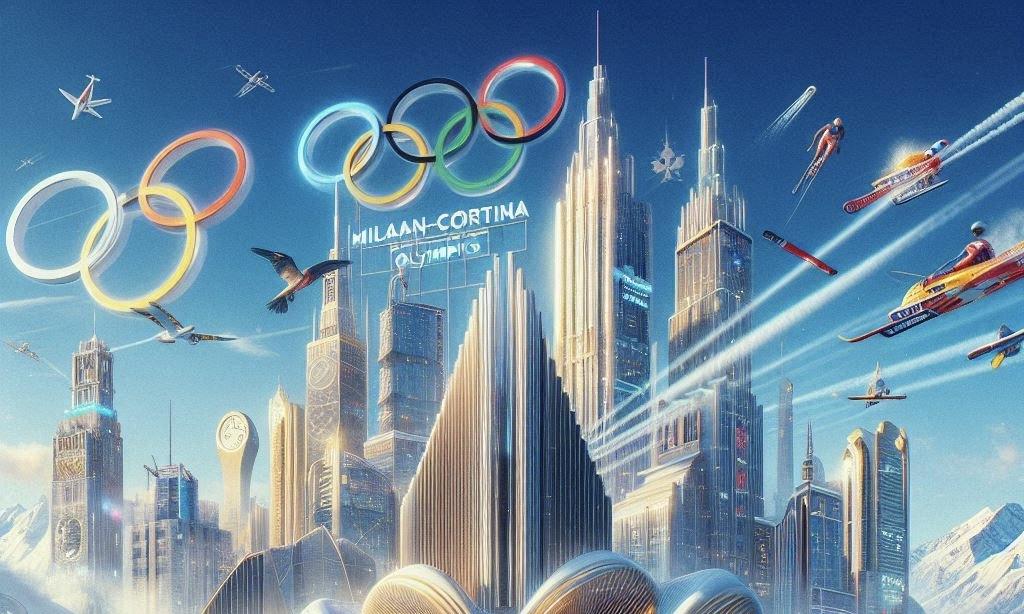The upcoming Milan-Cortina Winter Olympics are shaping up to be a transformative event for the athletes who will compete and the entire world of winter sports. As preparations move forward, the event is poised to introduce a series of innovations that could redefine the future of the Winter Games and catalyze the globalization of sports traditionally confined to colder climates.
Central to this transformation is the potential introduction of new sports and cutting-edge technologies that promise to bring a fresh dynamic to the Olympics. The organizing committee is reportedly exploring including sports that could capture the imaginations of a younger, more diverse audience. These additions are not just about expanding the roster of events but also about tapping into the cultural and recreational trends that resonate with new generations of athletes and fans alike.
Moreover, technological advancements are expected to play a pivotal role in these Games, offering innovations that could become standard in future Winter Olympics. From enhanced virtual reality experiences for spectators to sophisticated data analytics tools for athletes and coaches, the Milan-Cortina Olympics could serve as a testing ground for breakthroughs that will redefine how winter sports are played and viewed. The application of these technologies is likely to increase the accessibility and appeal of the Games, drawing in audiences from regions where winter sports have not traditionally held sway.
Perhaps more significant than the technological and sporting innovations is the growing globalization of winter sports, a trend that the Milan-Cortina Olympics are set to accelerate. Traditionally dominated by countries with long winters and snow-covered landscapes, winter sports are now capturing the interest of nations far beyond these regions. This surge in global interest is reflected in the increasing participation of athletes from countries that have historically been on the sidelines of the Winter Games.
Nations from Asia, South America, and even Africa are investing in winter sports programs, spurred by a combination of factors, including climate-controlled training facilities and the inspiration of trailblazing athletes from non-traditional winter sports nations. The Milan-Cortina Olympics are expected to showcase this expanding diversity, with a broader array of countries vying for medals and bringing new styles and perspectives to the competition. This shift not only broadens the competitive field but also enhances the cultural richness of the Games, making them a truly global celebration of athletic achievement.
The implications of this global expansion are profound. As winter sports gain popularity in new regions, the future of the Winter Olympics could see a more balanced distribution of power, with medals being won by a more comprehensive array of countries. This trend could also drive the development of new winter sports facilities worldwide, further entrenching the global nature of these activities.
The Milan-Cortina Olympics are more than just another installment of the Winter Games; they are a pivotal moment in the evolution of winter sports. The innovations and global trends highlighted in these Games could shape the future of winter sports for decades, making this event a milestone in the history of the Olympics and the broader sports world. As the world watches, the Milan-Cortina Olympics could be remembered as the Games that redefined what is possible in the icy arenas of winter competition.



 From Messi to Mika Häkkinen: how top athletes can slow down time
From Messi to Mika Häkkinen: how top athletes can slow down time  Trump's Transgender Sports Ban Faces Enforcement Challenges
Trump's Transgender Sports Ban Faces Enforcement Challenges  Why Manchester City offered Erling Haaland the longest contract in Premier League history
Why Manchester City offered Erling Haaland the longest contract in Premier League history  Trump Signs Executive Order Targeting Big-Money College Athlete Payouts
Trump Signs Executive Order Targeting Big-Money College Athlete Payouts  NBA Returns to China with Alibaba Partnership and Historic Macau Games
NBA Returns to China with Alibaba Partnership and Historic Macau Games  Trump Booed at Club World Cup Final, Praises Pele as Soccer’s GOAT
Trump Booed at Club World Cup Final, Praises Pele as Soccer’s GOAT  Australia’s major sports codes are considered not-for-profits – is it time for them to pay up?
Australia’s major sports codes are considered not-for-profits – is it time for them to pay up?  Trump Set to Announce Washington D.C. as Host of 2027 NFL Draft
Trump Set to Announce Washington D.C. as Host of 2027 NFL Draft  Trump Plans UFC Event at White House for America’s 250th Anniversary
Trump Plans UFC Event at White House for America’s 250th Anniversary  Trump’s U.S. Open Visit Delays Final, Fans Face Long Security Lines
Trump’s U.S. Open Visit Delays Final, Fans Face Long Security Lines  Trump Draws Cheers at Ryder Cup as U.S. Trails Europe After Opening Day
Trump Draws Cheers at Ryder Cup as U.S. Trails Europe After Opening Day  Trump Attends Super Bowl Amid Cheers, Boos, and Political Divide
Trump Attends Super Bowl Amid Cheers, Boos, and Political Divide  Apple Eyes U.S. Formula 1 Broadcast Rights in Major Sports Streaming Push
Apple Eyes U.S. Formula 1 Broadcast Rights in Major Sports Streaming Push  Trump Threatens Stadium Deal Over Washington Commanders Name
Trump Threatens Stadium Deal Over Washington Commanders Name  JD Vance to Lead U.S. Presidential Delegation at Milano Cortina Winter Olympics Opening Ceremony
JD Vance to Lead U.S. Presidential Delegation at Milano Cortina Winter Olympics Opening Ceremony  Native American Groups Slam Trump’s Call to Restore Redskins Name
Native American Groups Slam Trump’s Call to Restore Redskins Name  LA28 Confirms Olympic Athletes Exempt from Trump’s Travel Ban
LA28 Confirms Olympic Athletes Exempt from Trump’s Travel Ban 































